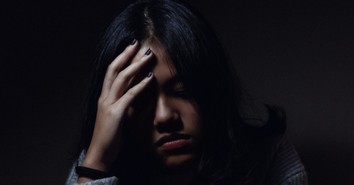What to Do When You See Abuse around You

In a phone call recently, Katherine shared how she had finally left her husband Paul, of 35 years.
“Paul just couldn’t ever get it,” she lamented. “He put a spin on everything that he was getting a bad break, being blamed for everything, that nothing he ever did was his fault. I just couldn’t take it anymore and so decided to separate from him.”
She continued.
“Paul has our children convinced that he had nothing to do with the breakup. He has them all feeling sorry for him and are convinced I’m making a mountain out of a molehill. Now, not only do I have to live with the pain he has caused me for years, but also the rejection of family, friends, and even my church.”
I questioned Katherine more, wanting to learn about the dynamics of their marriage.
“What exactly did he do that was painful?” I asked.
“They were so many subtle things,” she said. “He would pout and give me ‘the silent treatment’ if I hurt his feelings. He would get really angry at times and throw something against the wall. He would go to our adult children and complain about me. Never—and I mean never—would he say how critical he could be and how much he blamed me for everything. He never said ‘I’m sorry.’”
“Now that you’ve separated from him, has he begun to recognize what he does and the damage it has on you?” I asked.
“I haven’t seen any impact,” she said. “I kept hoping he would make the connections, but I keep hearing from our kids that he is talking to them about me. Our friends are critical of me leaving him and our pastor has lectured me about my motives. He gets all the support and I get the blame. No one seems to understand and he sure is not going to help them get it.”
Katherine was being made the scapegoat for her husband’s abusive behavior. She is not unique in her experience as many are routinely scapegoated—defined as bearing the blame for something that is deserved for someone else.
In this situation, Katherine was being held responsible by her children, friends, and even her church for separating from her husband, when in fact it was his ongoing abusive behavior that ultimately led to her separating from him. Thus, in the process of “scapegoating,” she experienced what is known as “secondary abuse.”
Remember that the term scapegoat comes from Scripture:
“But the goat chosen by lot as the scapegoat shall be presented alive before the Lord to be used for making atonement by sending it into the wilderness as a scapegoat.” (Leviticus 16:10)
Scott Peck, in his book People of the Lie seemed to be talking about scapegoaters when he said “While they seem to lack any motivation to be good, they intensely desire to appear good. Their ‘goodness’ is all on a level of pretense.”
Can you see the problems here? The innocent one—the victim—is cast in the darkest light while the abuser is seen as innocent. The darkness of the abuser is thus not brought to light and the one scapegoated is viewed as the harmful one. The abuser is not confronted with his wrongs and the victim is further harmed.
Please understand that rarely is this a conscious, malicious process on anyone’s part. Most of us rush to the aid of our friends. Church family, friends, and family want to take up for others. But we can’t see what we can’t see. Make no mistake about it, however. The process of scapegoating is damaging, dangerous, and we cannot stand on the sidelines and watch it continue.
What can be done about this problem?
First, critically evaluate every situation. We must all be very discerning when it comes to matters of abuse. Though tempting to take sides, and even to stick up for someone we care deeply about, be careful to critically discern the situation. You will do no good sticking up for someone who appears good while allowing their mate to take the blame for their harm.
Second, get involved if appropriate. Though very challenging, take a stand when appropriate to do so. Showing favoritism to the abuser causes harm to the victim. Doing nothing in the face of abuse causes further abuse—secondary harm. Be willing to get involved and speak truth. Speak up for what is right when you see injustice.
Third, hold the scapegoater accountable for their behavior. It is critical that the scapegoater—the one who appears innocent while blaming their mate—be held accountable for their behavior. It is critical that the abuse come out into the light. Abuse often stops when it is squarely confronted. Darkness cannot exist in the power of the light.
Fourth, confront family, friends, and systems that perpetrate secondary abuse. Refuse to allow friends, family, or systems to scapegoat someone. Don’t stand idly by while someone is further harmed and the harming party escapes accountability. Intervention takes courage but is necessary. Change does not occur without intervention and can with it.
Finally, encourage the victim. Victims often stand alone. They retreat, withdraw, and seclude themselves to protect against further harm. They need your voice and must be encouraged to rediscover their voice. They need your help. Risk getting involved and standing up for the victim. This will not only help her, but will allow for the abuser to get the help he needs. Place responsibility onto the person to whom it belongs.
Is scapegoating occurring around you? Are you paralyzed about knowing what to do? If you would like further help, we are here for you. Please send responses to me at info@marriagerecoverycenter.com and read more about The Marriage Recovery Center on our website and learn about our Personal and Marriage Intensives as well as our newly formed Subscription Group for women struggling with emotional abuse.
Photo credit: ©Thinkstock/AntonioGuillem
Originally published April 11, 2017.







